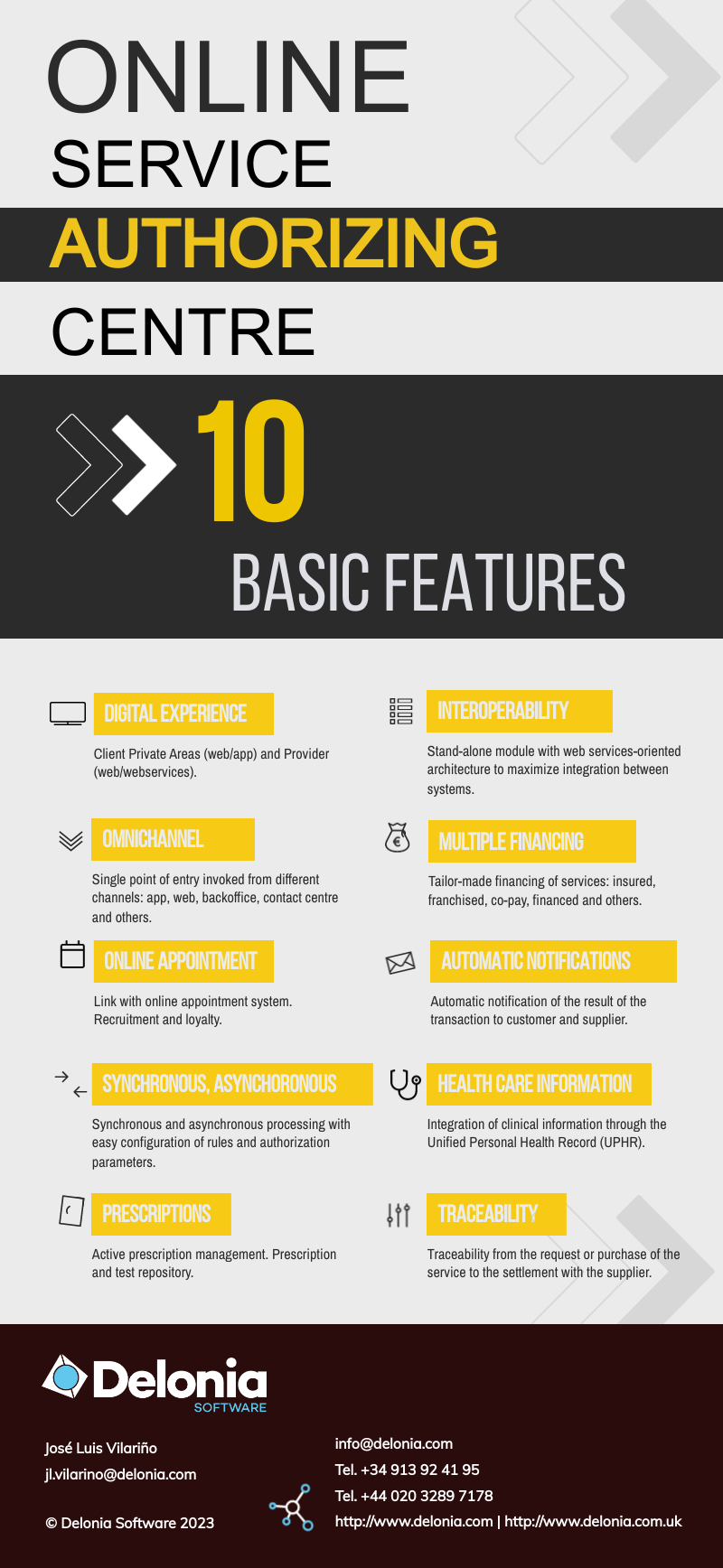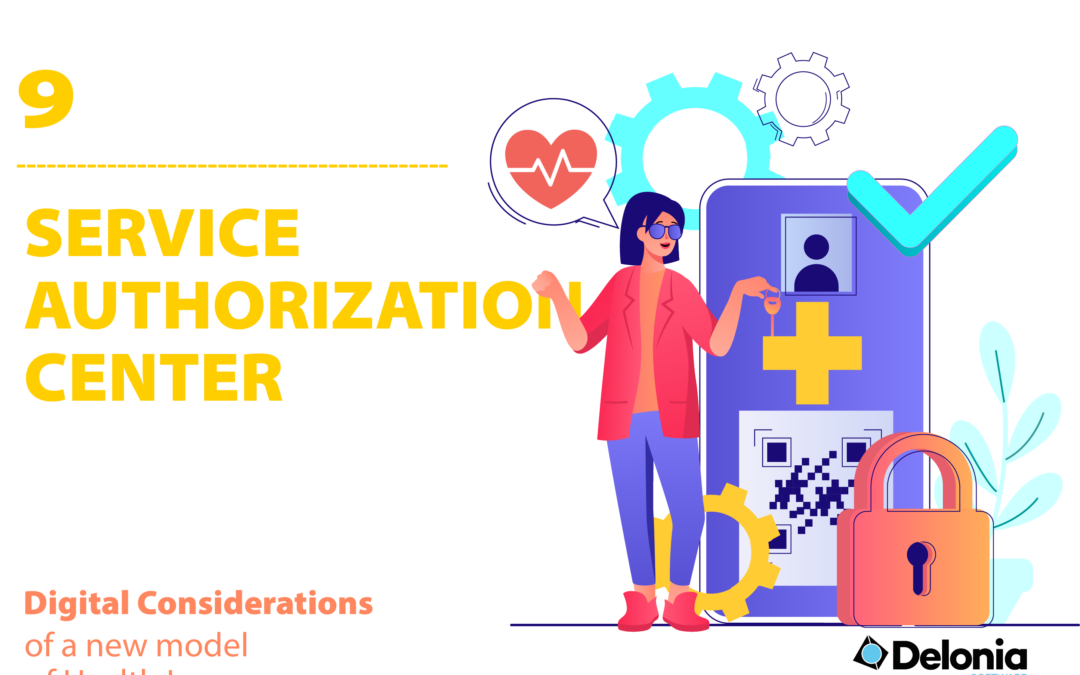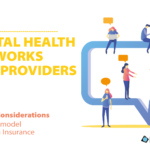In this post we will define what an authorizing center of a digital health services platform is, the elements that compose it and the operational and conceptual advantages of its implementation.
1. Definition of Service Authorizing Center (CAS)
The Authorizing Center is a system or module that is responsible for the validation and certification prior to the provision of any service and that will determine the conditions of access to it.
Traditionally, for example in the operations of insurance companies, this Service Authorization Center responded with a yes or no, authorizing or denying access to a service depending on the characteristics of the client, the provider and the service itself. However, digitization means that this basic function can be given much more scope, bringing service authorization operations closer to digital e-commerce models. In this regard, we may encounter the following transactions:
- A client (who may or may not be a policyholder of a company) requests a specific service provided by a provider he has located through the platform’s search engine.
- The service can be something as simple as an appointment with a specialist or a more complex medical procedure such as a diagnostic test or surgery.
- In both cases, the Authorizing Center will validate the client’s characteristics, the type of coverage, type of insured, previous medical conditions, commercial promotions that may apply, etc.
- The authorizing center will also validate the provider’s service type and access requirements. With all this information, the conditions of the service to be authorized will be established.
- In addition, the system will determine not only whether the service is authorized, but also the specific conditions of the authorization. In this way, the price (service pricing function) to be paid (payment gateway function) by the customer in order to access the service will be set at the end.
Digitization processes can give the basic service authorization function much more scope, bringing it closer to digital e-commerce models: automation and immediacy.
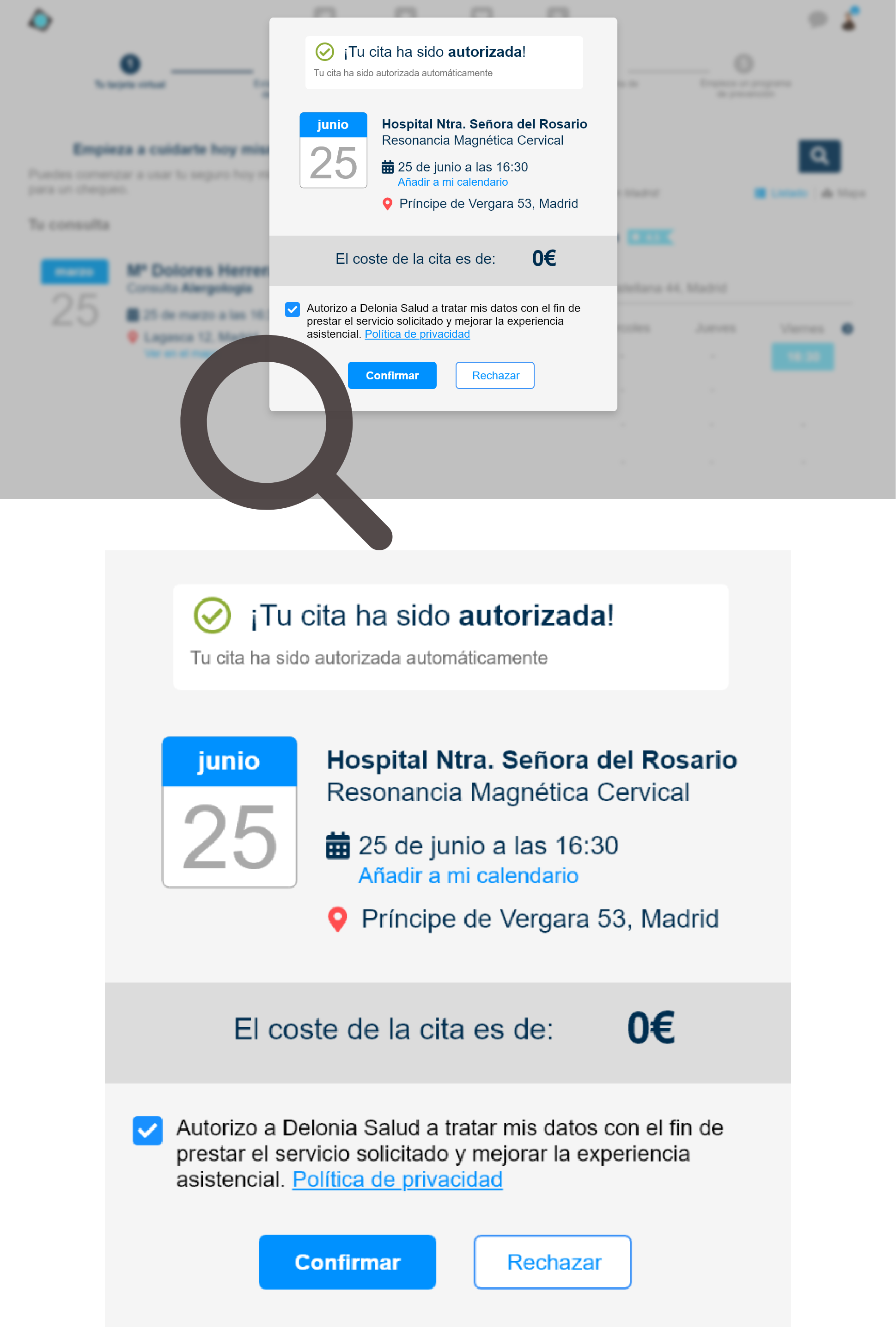
It should be noted that in the new concept of “authorization” there will rarely be a rejection or denial in the sense that a price will always be provided to access the service. It may be an uninsurable benefit but accessible through co-payment. For example, if authorization is requested for a service excluded from insurance, we can always propose that the client pay for this service (at preferential rates) and thus give authorization to the service provider.
This new service authorization model improves the experience of the insured customer who is not radically excluded from a service, but is provided with an alternative access route.
2. General characteristics of the Online Services Authorizing Center (CASOL)
The conceptual model of the Authorizing Center as an independent module included in the digital services platform is based on the following principles:
- Module independent and decoupled from other modules.
- Fully digital experience. With private customer (web/app) and provider (web portal/webservices) areas.
- Web services oriented technological architecture to maximize integration and interoperability with other systems.
- Multiple Online Authorizing Center, single point of entry invoked from different channels:
- App/Mobile
- Web (internet)
- Backoffice (intranet)
- Contact Center
- Automatic from the system (follow-up of scheduled services)
- Management of medical, paramedical or alternative services, independent of their financing. Services may be insured, franchised, financed, or paid for directly. E-commerce (market place) functionality may also be included.
- Service collection management by, among others, credit card, transfer, Bizum or direct debit.
- Link to Online appointment.
- Result of the operation in action (acceptance/rejection rules) and economic valuation of the service (cost to the customer) includes automatic notifications to both the customer and the supplier and online appointment confirmation.
- Synchronous and/or Asynchronous mode processing with easy configuration of rules and authorization parameters:
- By type of customer
- By product type
- By coverage
- By type of service
- By supplier/network
- Workflow for management of non-automatic services that require different levels of assessment or management by backoffice managers.
- Unified Personal Health Record. Integration of clinical information .
- Active prescription management. Repository of recipes and tests.
- Complete traceability from the request or purchase of the service with the generation of the online quotation, to its settlement to the supplier.
The Service Authorizing Center will allow the management of covered insured, franchised, financed, or direct payment services and may include e-commerce or marketplace functionality.

3. Flowchart of the Online Service Authorization Center (CASOL)
The high-level flowchart for the Service Authorizing Center is as follows:
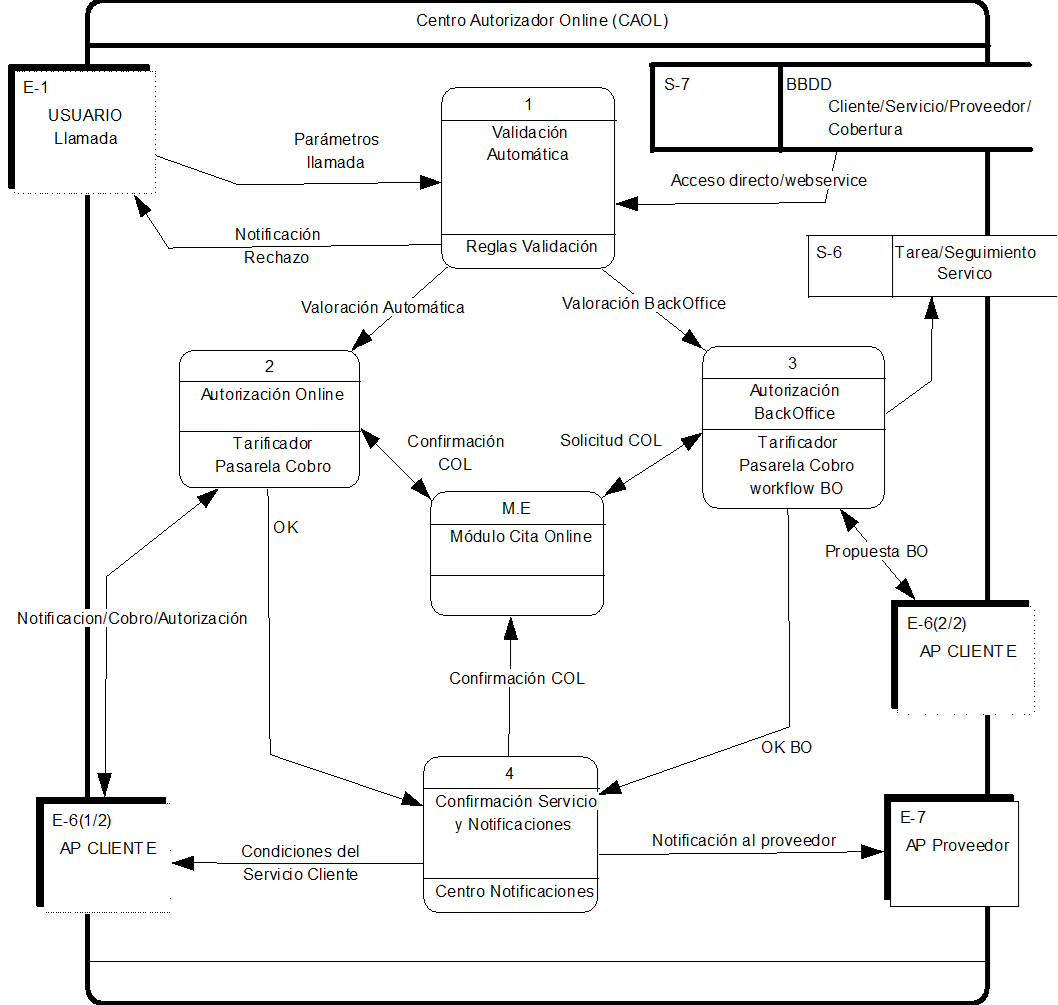
Basic Input/Call Parameters
The Authorizing Center will be invoked with the following base parameters:
- Customer Identification
- Service Identification
- Prescriber Identification
- Identification of the Provider
- Online appointment data if applicable
Basic Output/Response Parameters
The Authorizing Center will return the following base parameters as a result:
- Customer identification
- Service Identification
- Prescriber Identification
- Identification of the Provider
- Online appointment details (if applicable)
- Service status (accepted, rejected, among others)
- Economic valuation for the Customer
- Economic valuation for the Supplier
Integrated External Modules.
The Online Services Authorizing Center interacts with and can use the following independent and external modules or tools:
- Online Appointment Module
- Payment Gateway
- Notifications Module
- E-mail address
4. Conclusions
The Online Service Authorization Center will provide a proactive digital experience to the customer by always proposing a solution to the service demanded. This management of the service will be independent of the financing, being the type of financing the one that will fix the price of the service. We will always provide a proposal and a solution to the customer’s demand or need.
The Online Service Authorization Center will always provide a solution or alternative to the customer’s need.
